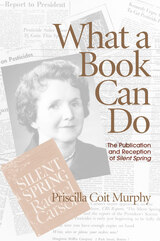“Cameron has written a lively biography of one of my heroes, a man who seized the moment and became a legend in the history of the AIDS epidemic. It captures the complexity of a doctor who followed his conscience throughout his career and emerged on the right side of history. An inspiring read for the public health community and young physicians with leadership aspirations.”—Michael Gottlieb, who is known for his 1981 identification of AIDS as a new disease, and for his HIV/AIDS research, activism, and philanthropic efforts associated with treatment
“Cameron’s in-depth look at one of the most interesting and complex figures in American public health provides unvarnished context for Koop’s critically important leadership at the start of the AIDS epidemic and on other critical public health issues.”—Jeffrey Levi, former executive director of the National Gay and Lesbian Task Force
“At a time when political and cultural divides seem unbridgeable, we need only look to the recent past to find a model of a principled leader who reached across the chasm to care for our neediest citizens.”—Philip Yancey, author of What’s So Amazing About Grace
“At the heart of Nigel Cameron’s comprehensive biography lies the blow-by-blow account of how ‘Dr. Kook,’ as some of his critics were calling him, became a hero to me—and to many millions of Americans—and the public health leader of his generation, as he turned his ferocious energies to battling the tobacco companies, championed the needs of handicapped children and victims of domestic abuse, and led the fight-back against AIDS. We’ve waited a long time for this story to be told, and as Washington gets yet more deeply divided there could be no better time to be reminded of a man who was driven not by politics but by principle and moral courage.”—Henry Waxman, former Member of Congress
“No one did more for American public health than C. Everett Koop. And that came after no one did more for pediatric surgery than C. Everett Koop. Cameron’s Dr. Koop tells this story with brilliance and luster.”—Gregg Easterbrook, author of Surgeon Koop and It’s Better Than It Looks
“Chick Koop was the role model for the modern surgeon general. His positive impact on the public’s health was profound by any measure and this biography is an opportunity for us all to better understand the life of such a remarkable individual. Dr. Koop: The Many Lives of the Surgeon General is a well-researched biography of the man who redefined the role of our nation’s top doc.”—Georges C. Benjamin, MD, executive director, American Public Health Association
“Cameron's biography of Dr. C. Everett Koop is incisive, entertaining and a comprehensive tour de force!”—N. Scott Adzick, MD, Surgeon-in-Chief at the Children's Hospital of Philadelphia
“Had Dr. Koop never been Surgeon General, his development of the field of pediatric surgery still would rank him as a foundational figure of 20th-century American medicine. His tenure as Surgeon General at the dawn of the AIDS pandemic, his work on tobacco control, his nuanced statements on abortion, elevated him to near-mythic status. Cameron’s meticulous and balanced biography does justice to the extraordinary life of this complicated man.”—Steven Bernstein, director of the C. Everett Koop Institute
“Cameron masterfully and compassionately delivers on his title. Readers familiar with just one of these intriguing lives—innovative pediatric surgeon, outspoken Surgeon General, Reagan appointee—may be surprised to learn the fuller story of this multifaceted, often maddening (to liberals and conservatives alike), influential personality. For this treatment, we owe Cameron our thanks.”—Eric M. Meslin, former executive director US National Bioethics Advisory Commission
“A must-read for those interested in a nuanced history of the intersection of medicine and the anti-abortion movement. In Dr. Koop, Cameron gives us a compelling portrait of the famed Surgeon General and his incredible role in shaping the current American approach to pediatric disability, smoking, and AIDS.”—Alyssa Burgart, clinical associate professor, anesthesiology and pediatrics, Stanford University
“This is a beautifully written and meticulously documented account that goes behind the many landmark accomplishments of Dr. Koop. It is a study in leadership and greatness that will be appreciated by and inspiring to people from all walks of life.”—Jack Henningfield, Johns Hopkins School of Medicine
“Thanks to Cameron we have a rich, compelling, and authoritative biography of the most influential Surgeon General in US history. Hailed as a ‘rock star,’ Chick Koop was surgeon, prophet, and public health educator. American medicine and public health are better off because of C. Everett Koop, MD, and we are the better for having this biography.”—C. Ben Mitchell, former Director of Biomedical and Life Issues, Southern Baptist Convention’s Ethics and Religious Liberty Commission
“Chick Koop was a friend, a fellow surgeon, a mentor, and an icon whose selfless leadership and public persona redefined the role of the United States Surgeon General.”—Richard Carmona, 17th US Surgeon General
“Dr. C. Everett Koop was a compelling, sometimes controversial, nationally influential figure at the nexus of medicine, politics, and evangelicalism before, during, and after his famous work as Surgeon General in the Reagan Administration. This book covers the full scope of Dr. Koop’s vast network of personal connections and impressive list of important roles in public and private life. Through interesting anecdotes and intimate encounters with ‘America’s Doctor,’ Cameron’s research enables us to take the measure of a man who always seemed much larger than life, with exceptional talents, remarkable accomplishments, and inevitable flaws.”—Phil Ryken, president of Wheaton College, Illinois
“In this lively and comprehensive biography, Nigel M. de S. Cameron traces the life and work of one of the late twentieth century’s most riveting figures. The portrait of C. Everett Koop that emerges in these pages is that of a deeply religious man and principled contrarian whose prodigious accomplishments—as a pediatric surgeon, public health official, prolife and anti-tobacco crusader, advocate for the victims of AIDS, and health reformer—were matched (and likely driven) by his monumental ego. This thoroughly researched and textured account will be the definitive biography for decades to come.”—Randall Balmer, author of Redeemer: The Life of Jimmy Carter
“Cameron breaks past the reductive caricatures of Koop to give readers a balanced picture of this free thinker and controversial man who revolutionized the field of medicine, the office of the surgeon general, and the evangelical church. Cameron deserves applause for his striking biography of Koop.”—Anthony Eames, author of A Voice in Their Own Destiny: Reagan, Thatcher, and Public Diplomacy in the Nuclear 1980s
— -












